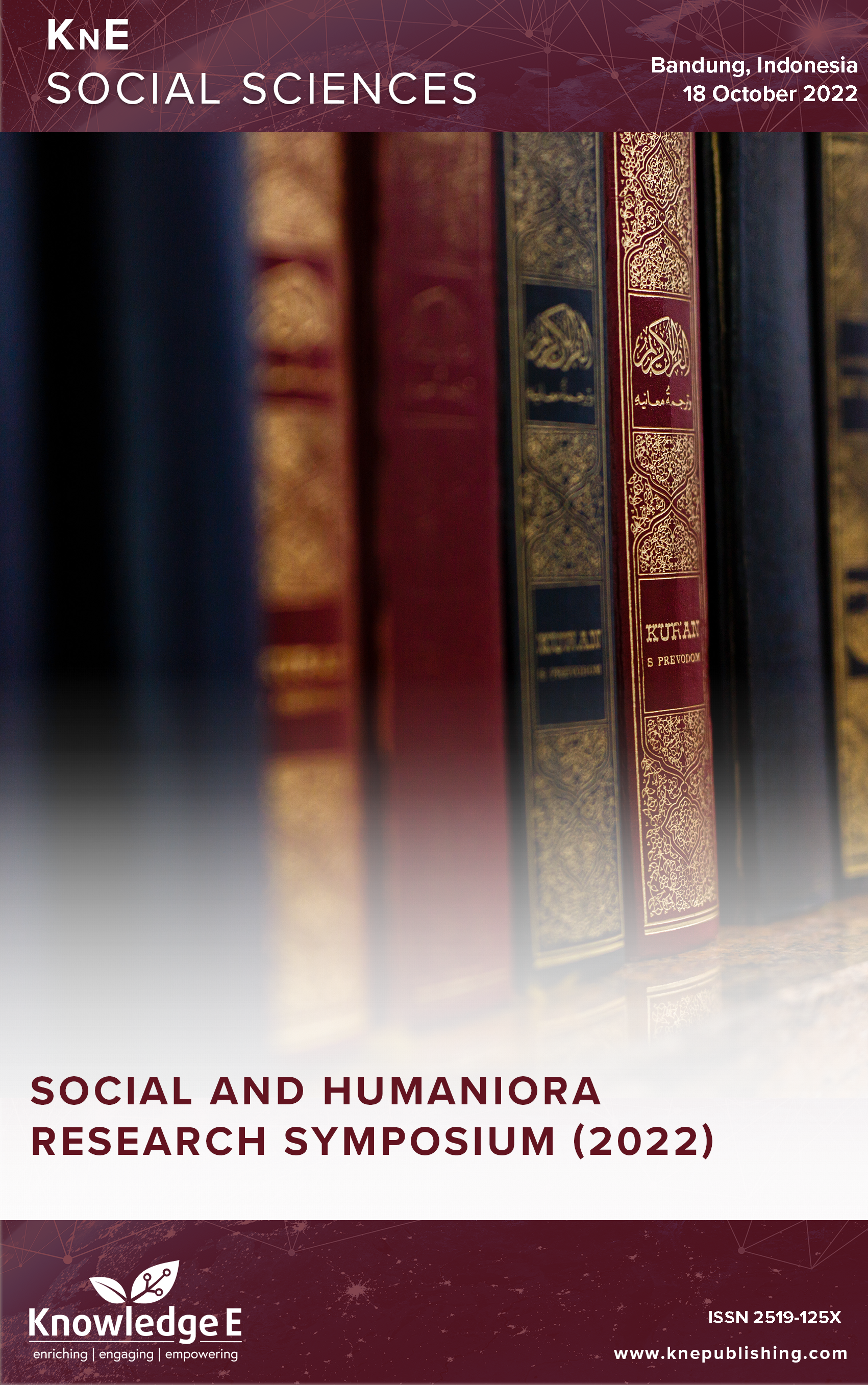Empowerment of Rugby as the Economic Driver for the MSMEs: In Collaboration with the Indonesian Rugby Union (PRUI) West Java
DOI:
https://doi.org/10.18502/kss.v8i18.14217Abstract
Prior literatures have found the beneficial impact of hosting sports event in enhancing economic growth, especially by applying the empowerment concept. Given the rationale, this study sets Garut City as one of the Indonesian cities, as a research object to explore how hosting sports events can empower the SMEs in enhancing their business growth. This study focuses on hosting Rugby events as a medium to empower the SMEs and to further introduce Rugby to the local community. This research employed qualitative approach using a participatory technique. This study aims to dig deeper into information related to the current issue faced by the SMEs, to collect more insights about alternative solutions, and finally to give empowerment programs as the solution for those issues. The following were the three main steps used in the empowerment program, counseling, training, and mentoring stages. These stages help the SMEs to gather more information, knowledge, and skills in running their business and are expected to help in enhancing their business performance in terms of their financial performance and business sustainability in the future.
Keywords: Rugby, sports, MSMEs, empowerment, economic development
References
[2] Chalip L, Leyns A. Local business leveraging of a sport event: Managing an event for economic benefit. Journal of Sport Management. 2002;16(2):132–158.
[3] Tyehimba R. “Sports as social empowerment.” Rastaspeaks, 2005. [Online]. Available: www.rastaspeaks.com/tyehimba/2005/0208.html
[4] Government A. Game plan 2006: Sport and leisure industry startegic national plan. Australia: Canberra City; 2011.
[5] Patterson R, McNamara E, Tainio M, de Sá TH, Smith AD, Sharp SJ, et al. Sedentary behaviour and risk of all-cause, cardiovascular and cancer mortality, and incident type 2 diabetes: a systematic review and dose response meta-analysis. European Journal of Epidemiology. 2018 Sep;33(9):811–829.
[6] Sallis R, Young DR, Tartof SY, Sallis JF, Sall J, Li Q, et al. Physical inactivity is associated with a higher risk for severe COVID-19 outcomes: a study in 48 440 adult patients. British Journal of Sports Medicine. 2021 Oct;55(19):1099–1105.
[7] Siefken K, Junge A, Laemmle L. How does sport affect mental health? An investigation into the relationship of leisure-time physical activity with depression and anxiety. Human Mov. 2019;20(1):62–74.
[8] Rohandi MMA, Gumelar ET, Cintyawati C, Permana RMT. “Leveraging Rugby Event to Enhance the Economic Development of MSMEs in Garut.” Jurnal Bisnis dan Manajemen. 2022;19(02):37–44. https://doi.org/10.29313/performa.v19i2.10100
[9] Fathy R. Modal Sosial: Konsep, Inklusivitas dan Pemberdayaan Masyarakat. Jurnal Pemikiran Sosiologi. 2019;6(1):1.
[10] Karunia AM. “Menperin: Kondisi Pandemi, Peluang Bagi Industri Alat Olahraga Pacu Produksi,” Kompas.com, 2020. [Online]. Available: https://money.kompas.com/read/2020/09/04/213200526/menperin–kondisipandemi- peluang-bagi-industri-alat-olahraga-pacu-produksi
[11] Nopembri S. “Empowerment People dalam Olahraga: Awal Menuju Industri Olahraga,” p. 1, 2021.
[12] Lawson HA. Empowering people, facilitating community development, and contributing to sustainable development: The social work of sport, exercise, and physical education programs. Sport, Education and Society. 2005;10(1):135–160.
[13] Neodemokrasi, “Pemberdayaan Usaha Mikro Kecil dan Menengah di Tengah Pandemi,” Neodemokrasi, 2020. [Online]. Available: https://www.neodemokrasi. com/pemberdayaan-usaha-mikro-kecil-dan-menengah-di-tengahpandemi/
[14] Permana RMT, Hamidah SF. “Analyze the marketer activity in digital era with implemented digital ethic.” Jurnal Manajemen dan Bisnis (Performa). 2022;19(2):45– 49. https://doi.org/10.29313/performa.v19i2.10483

